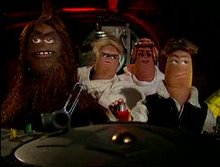132. All Along the Watchtower
In Dylan's seminal classic, we are thrust deep into a conversation between two archetypes; the joker and the thief. The joker is in great distress, he senses that there is no way out for him. Hence...
"There must be some way out of here," said the joker to the thief,
"There's too much confusion, I can't get no relief.
Businessmen, they drink my wine, plowmen dig my earth,
None of them along the line know what any of it is worth."
Whom does the joker represent? The word does tend to conjure the timeless image of a court jester, someone plying his trade earnestly, a subject of ridicule for an unappreciative crowd. But perhaps the joker could also represent the artist, for artists are more often than not ridiculed and humiliated in their lifetime. No one understands them, and everyone seeks to profit from them. So businessmen do drink the artist's wine, savouring the taste they perhaps are not qualified to understand? Like the cheese-cracker-eating, wine-sipping types that frequent art galleries and plays, commenting pseudo-intelligently on matters that may well be beyond their grasp.
But could it also be that joker is a voice that speaks inside all of us? A voice of the nurturer, who seeks to create and build according to our own vision. And hence is frustrated when many, perhaps the entire world, doesn't understand just exactly what we're trying to accomplish? Be it at work, or maybe how we live our lives.
So the joker is exasperated, for the fruits of his labour are consumed without much appreciation by the masses. But the thief consoles him:
"No reason to get excited," the thief, he kindly spoke,
"There are many here among us who feel that life is but a joke.
But you and I, we've been through that, and this is not our fate,
So let us not talk falsely now, the hour is getting late."
Now just who is the thief? Could it be yet another voice raging within us? If so, what does it represent? Why does it understand the joker so much? Can this character, this thief, be even trusted at all? He tells the joker that they both understand that life is not as trivial as that, that they've been through it and know that it is not their fate to be so flippant. There is a clear message here that there is more at stake then the whims of the businessmen and the plowmen. And he ends it on a warning, that the hour is growing late, giving a veiled statement that the time to take action is at hand?
Then the scene shifts, there is a grand watchtower, with princes, women and servants within. Oblivious and happy. However, it is a watchtower, it must have been built in anticipation of an attack.
All along the watchtower, Princes kept the view,
While all the women came and went — Barefoot servants too.
Outside in the cold distance, a wildcat did growl.
Two riders were approaching, and the wind began to howl.
Then outside, wildcats growl, and two riders approach, and the wind begins to howl, foreshadowing of something major in the offing, just what are two riders' intentions? To seek refuge from the wind, or something else, something sinister? More importantly, who are the two horsemen? Are they the joker and the thief approaching? If so, could the grand watchtower represent the establishment, and them those who seek to challenge it? What are the odds of victory then, just two men against a seemingly well-manned tower. Does the joker partake in this mission because of the thief's urgings? Knowing full well there is no chance of success?
Perhaps we are our own joker and our own thief. The joker being all that is good and virtuous in us, and the thief one that seeks to corrupt and lead astray. But the thief could also mean courage, taking a stand for our values and making things happen, being the change we want to see.
Taken in that context, shall we let the voice of the thief stay silent and unheeded, laying dormant while the voice of the joker rages on, without a hint of action being taken?

1 comment:
drew: It's still eerie and dark in there huh?
Post a Comment